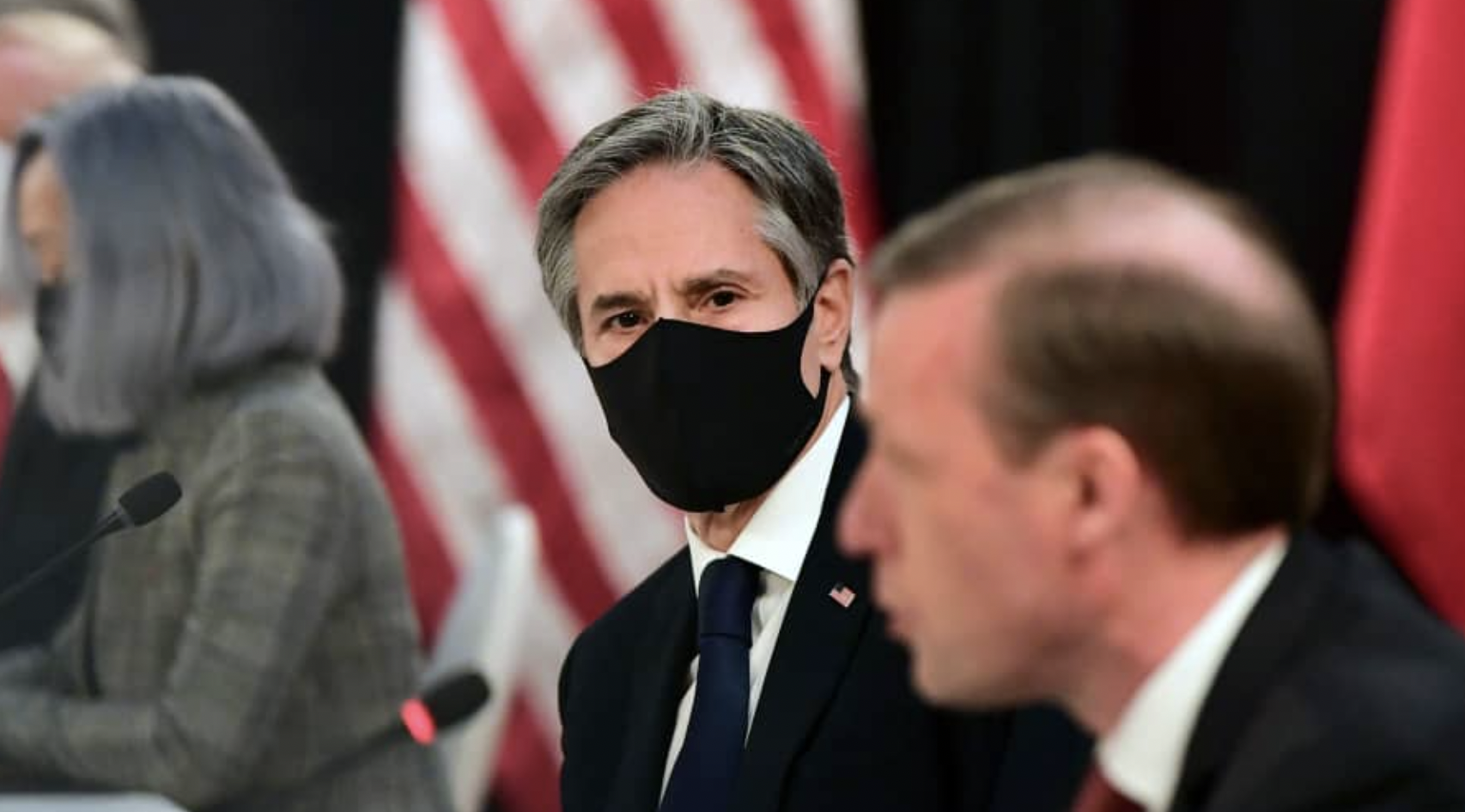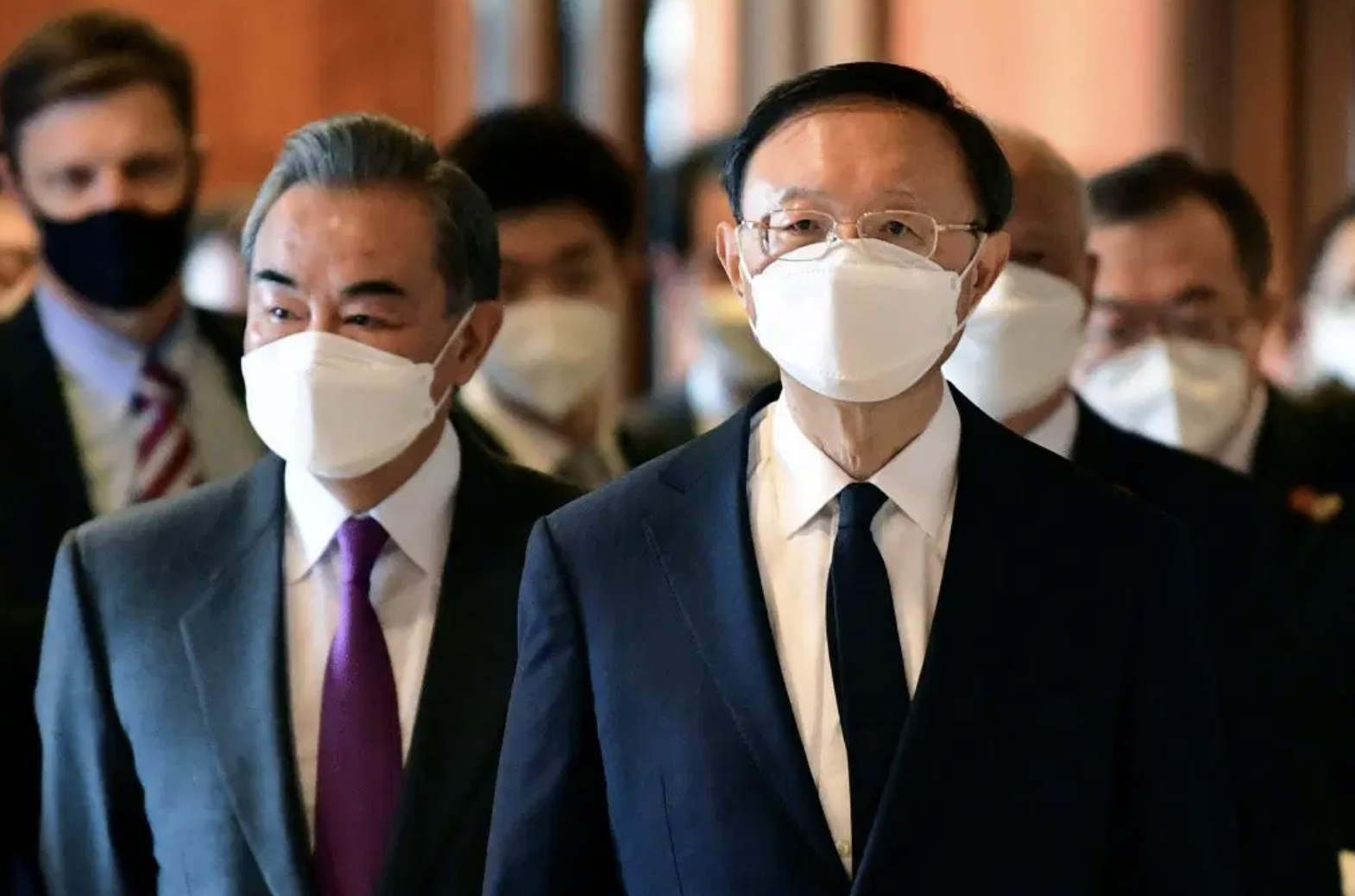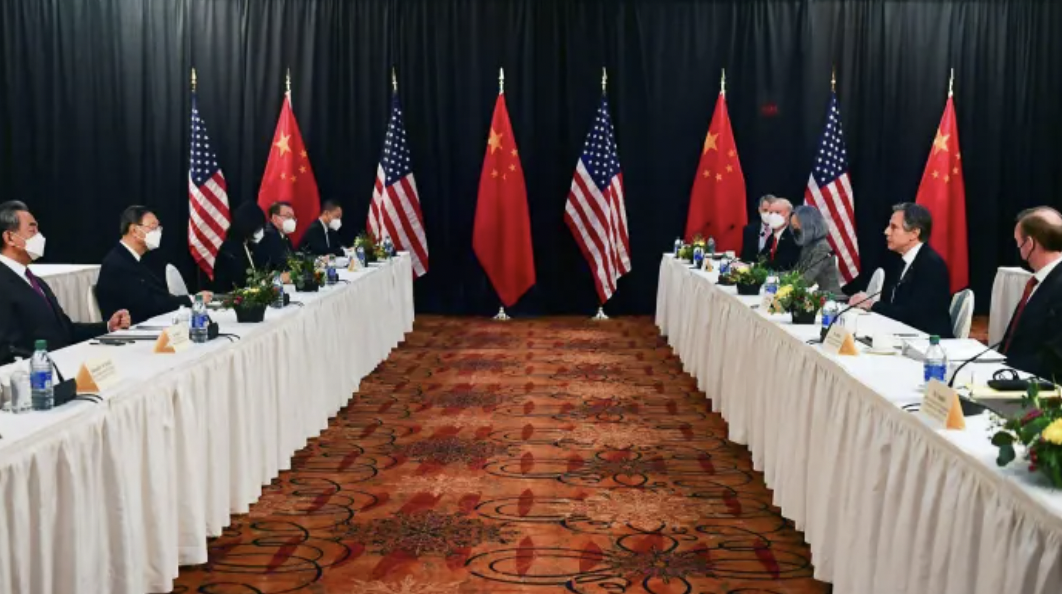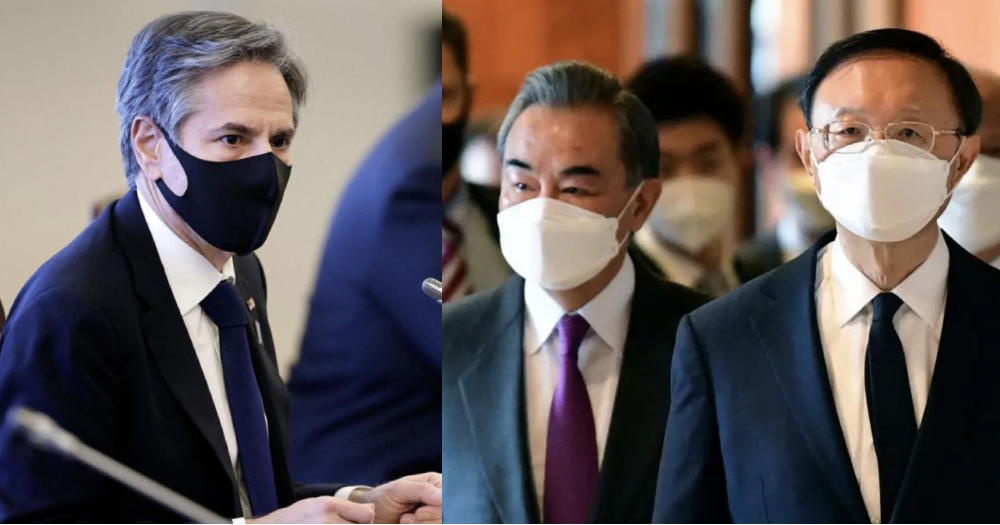Follow us on Telegram for the latest updates: https://t.me/mothershipsg
A two-day high-level meeting between officials from the United States and China since U.S. President Joe Biden took office got off to a rocky start on Thursday, Mar. 18, in Anchorage, Alaska.
Frosty exchange
Their frosty exchange, which included back-and-forth barbs targeted at the other country's governance and human rights malpractices, was evident from the beginning even before the meeting started.
While a scheduled photo session for officials was only supposed to take four minutes, with each side having two minutes to make a short public opening statement, it eventually took one hour and 15 minutes to wrap up.
Officials from both sides kept asking reporters to go back into the room so they could give additional remarks, CNBC reported, citing NBC News.
U.S. accused China of "grandstanding"
A U.S. official subsequently told reporters that the Chinese delegation "seems to have arrived intent on grandstanding, focused on public theatrics and dramatics over substance", Reuters reported.
"They made that clear by promptly violating protocol," he added.
 Image via Frederic J. Brown/AFP/Getty Images
Image via Frederic J. Brown/AFP/Getty Images
Director of China's Central Foreign Affairs Commission, Yang Jiechi, who was at the meeting along with Chinese Foreign Minister Wang Yi, later said: "I think we thought too well of the U.S. We thought that the U.S. side will follow the necessary diplomatic protocols."
He added that in front of China, the U.S. "does not have the qualification to say that it wants to speak to China from a position of strength".
Yang was referring to the Biden administration announcing sanctions on 24 Chinese officials just days earlier before the gathering in Anchorage.
Previously, just before Biden's inauguration took place, Beijing had also announced sanctions on 28 individuals who are mostly from the Trump administration.
 Image via Frederic J. Brown/AFP/Getty Images
Image via Frederic J. Brown/AFP/Getty Images
U.S. brought up China's human rights abuses
U.S. Secretary of State Antony Blinken, in his opening remarks, said the U.S. would like to discuss its "deep concerns with actions by China, including in Xinjiang, Hong Kong, Taiwan, cyberattacks on the U.S, economic coercion towards [American] allies".
He added:
"Each of these actions threaten the rules-based order that maintains global stability. That's why they're not merely internal matters, and why we feel an obligation to raise these issues here today.
I said that the U.S.' relationship with China will be competitive where it should be collaborative, word(s) can be adversarial, where (they) must be."
Regarding alleged cyber attacks on the U.S., Yang later responded by saying: "Whether it's the ability to launch cyber attacks or the technologies that could be deployed, the U.S. is the champion in this regard."
His remarks echoed the Chinese Foreign Ministry's comments previously, which called the U.S. the "real hacking empire" following allegations that the U.S. had conducted cyber attacks on China for 11 years.
Blinken also doubled down on the Biden administration's approach to China, which is to build up its allies in order to take on China.
Joining the meeting straight from his trip to Japan and South Korea, which are two key American allies in Asia, Blinken said from what he heard from "nearly a hundred counterparts", they are glad the U.S. is back, and that it is reengaged with its allies and partners.
 Image via Pool/AFP via Getty Images
Image via Pool/AFP via Getty Images
China points out systemic racism and violence in U.S.
In a 15-minute long speech, China refused to back down, saying it is "firmly opposed to U.S. interference in China's internal affairs" -- a longstanding stance that it has reiterated several times.
Conveyed via a translator, China said: "We have expressed our staunch opposition to such interference, and we will take firm actions in response."
In addition, China lambasted the U.S. for its racism and its treatment of its ethnic minorities, with the underlying message being its hypocrisy for accusing China for the same problems it is still trying to deal with.
"On human rights, we hope the U.S. will do better on human rights," China said, adding that it has "made steady progress in human rights", and that the U.S. has "many problems" regarding human rights that are "admitted by the U.S. itself as well".
China added:
"The challenges facing the U.S. in human rights are deep-seated. They did not just emerge over the past four years, such as Black Lives Matter, it did not come up only recently.
So we do hope that for our two countries, it's important that we manage our respective affairs well, instead of deflecting the blame on somebody else in this world."
Former U.S. President Trump had blamed China for its "incompetence" in handling the Covid-19 outbreak, and accused the country of causing "mass worldwide killing", ABC News reported.
He had also repeatedly used terms such as "China virus" and "kung flu" to refer to Covid-19.
China says U.S. doesn't represent the world
Yang further said: "We hope that when the U.S. side talks about universal values or international public opinion, you can think about whether you yourself are actually convinced by such talk, because you don't represent the world, you only represent the American government.
In addition, according to Reuters, he said: "History will prove that those who force China into a corner will only end up getting hurt themselves."
"To deal with China, you must start from a foundation of mutual respect," he stressed.
In calling for the U.S. to give up on its hard-handed approach towards China, Wang also said: "The U.S. has got to change its problematic ways."
Posturing for domestic audiences
The meetings come at a time when the U.S. and China are growing increasingly hostile towards each other over contentious issues such as mass incarceration of Uyghur minorities in Xinjiang, China's tough crackdown on pro-democracy activists in Hong Kong, greater assertiveness towards Taiwan and in the South China Sea, among others.
The harsh rhetoric from both sides, however, point to the need for both delegations to signal to their own domestic audiences.
Standing up to the U.S. would aid China in projecting its strong, confident image abroad to its own people, and would help win favour among its nationalistic population.
Already, Yang's remarks were praised by netizens on popular microblogging platform Weibo.
On the other hand, Blinken had to keep up the U.S.' tough stance on China to defend the Biden administration against Republicans who might say they are being "soft" on China.
Top image adapted via Getty Images
If you like what you read, follow us on Facebook, Instagram, Twitter and Telegram to get the latest updates.
